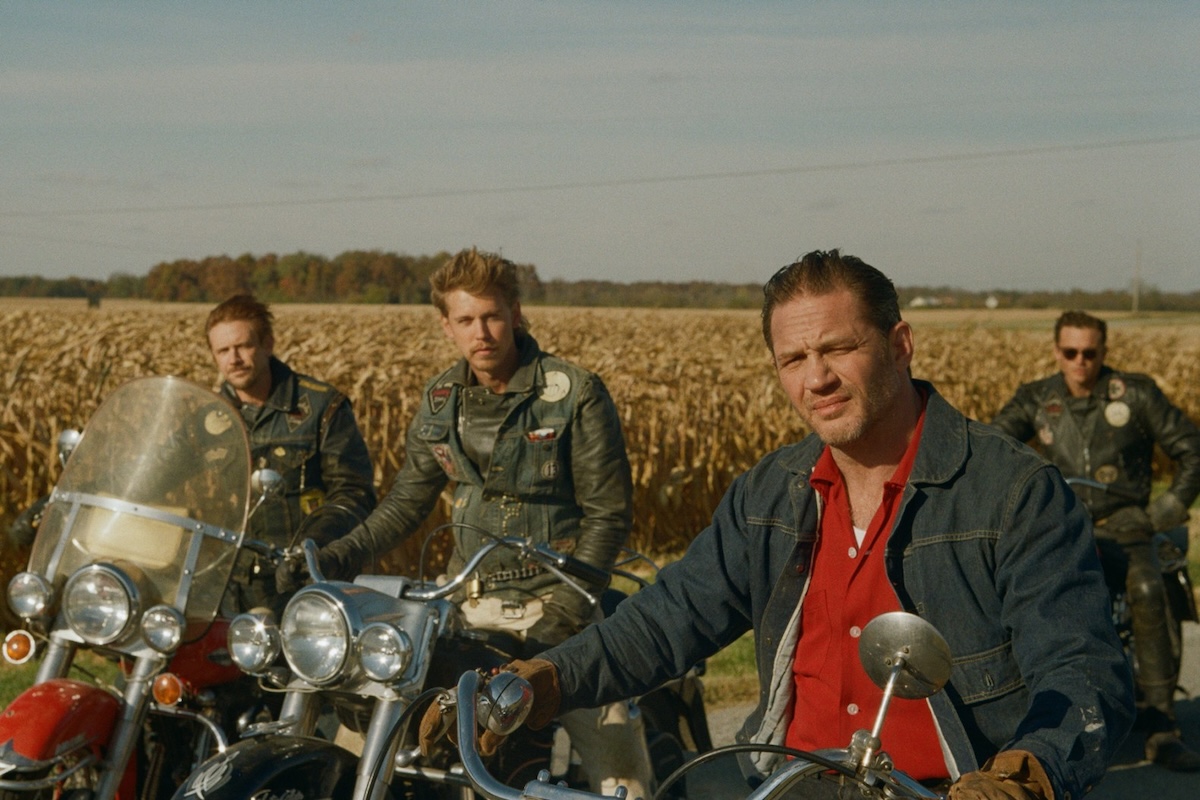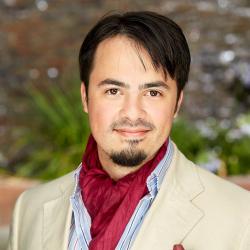Jeff Nichols is a strange director. He makes movies about the forgotten Americans, the white working and lower classes of the Midwest, but it’s only European festivals that really take an interest. His protagonists are invariably men, yet it’s the feminist classes in the media or at the Oscars that applaud him. Roger Ebert championed his first movies in the 2000s, Shotgun Stories and Take Shelter. Then in the 2010s, Mud, starring Matthew McConaughey, competed in Cannes for the Palme d’Or and at SXSW, and the sci-fi drama Midnight Special competed in Berlin for the Golden Bear, while his civil rights picture Loving was competing in Cannes and receiving Oscar and Golden Globes nominations.
Now Nichols has a sixth movie out, The Bikeriders, which competed at the Telluride Film Festival last year, and is only now out in theaters, having been delayed by the actors’ strike and other difficulties. The Bikeriders is the story of Johnny (Tom Hardy) and Benny (Austin Butler), told by Benny’s wife, Kathy (Jodie Comer), to a college kid photo-journalist, Danny Lyon (Mike Faist), a civil rights photographer whose book inspired Nichols’ story.
Danny joins the Vandals, a motorcycle club led by Johnny, a working-class man, a truck driver with a family. Johnny started the Vandals because that’s the only way he could really be a man. Manliness involves facing dangers, fighting, and ruling over others, earning and rewarding loyalty. These are not the hopes and dreams of the middle class, but the prosperous freedom of postwar America; good roads and better motorcycles made it possible to live such a life.
Manliness requires one more thing: beauty. Johnny is an ugly man inspired by the beautiful Marlon Brando, leader of the Black Rebel Motorcycle Club in The Wild One (1953). Benny is that beautiful youth, a figure out of Romantic poetry, irresponsible yet harmless, apparently as incapable of cruelty as of holding down a job—a hobo, lower class, as we used to say, and yet free. He might remind you of The Last of the Mohicans and of cowboys, or of Indians, for that matter. Kathy immediately falls in love with him and marries him; she later says that she thinks she can change him.
The Vandals hang out at a bar in a Chicago suburb, and in the latter half of the ’60s they become beautiful and terrible. Nichols largely abstracts from the sordid side of motorcycle gangs. He films long gorgeous sequences of the squadron of choppers riding by streetlights in the abandoned landscape of the night, suggesting that the proper backdrop of this silent stand for manliness is the cold cosmos. So also with biker picnics, dirt-bike riding, and the inevitable fighting of the men—they belong in the wilderness, in the fields or the forests, not in the city. The roar of the engines is the constant reminder of man’s spiritedness, which is only ever tamed with great difficulty.
With the end of the Korean War, there was nothing really left for men to do. America couldn’t be proud of them, or even bother to notice. The “closing of the frontier” also hovers in the background—responsibility replaces self-reliance or hardihood in the pantheon of American virtues. Not even TR’s rugged individualism makes sense anymore. The great decade of American freedom, the ’60s, nevertheless encouraged a sort of easygoing lawlessness in men, as authority withered into something sentimental, Progress. There’s no room for men in the progressive utopia, and the suggestion hangs over these brooding men that they have no future.
Johnny attempts for a few years to offer these abandoned men, rejected by a society whose moral confidence is still overpowering, a home where freedom and self-respect can be combined. Doing things together, impressing or even scaring each other and regular Americans, allows them to experience things most can’t, to see human types others recognize only dimly from history or myth. In the modern world, a vandal is merely a kind of lawbreaker, but the name after all is that of a tribe that sacked Rome in the fifth century, proving that manliness can be greater than corrupt sophistication, that freedom is preferable to slavery.
Johnny has two opposite virtues, he’s a tough brawler, taking on any challenger but also a rather calculated leader, capable of cruel lessons. Hardy does a remarkable job with the character, suggesting his great ambitions without revealing them, and insisting instead on his gentleness to all who seem to him weaker. But Johnny hopes to make a leader of Benny, the younger man whose spirit might inspire the other men, not only keep them in line, but Benny, precisely because he is what they all admire, rejects such responsibility. Rugged individualism is barely compatible with membership in a club.
The corruption follows from this distinction between the beauty of freedom and the necessary ugliness of making and imposing rules. Butler’s beautiful, wistful face and Hardy’s furrowed brow tell all. The club becomes infamous, attractive to any number of lawless men, expanding chapter after chapter cross the Midwest, increasingly including the kind of Vietnam veterans who are slaves to heroin. By the end of the decade, it becomes an ugly, violent mess full of younger men eager to abandon any connection to respectable America.
Nichols, like Danny the photojournalist, sees immediately how American these men are. They’re law-breaking is remarkably law-abiding. They take their tickets, arrests, and make their court dates—to begin with, their crime is mostly speeding, although there’s some disturbing the peace. When a club member dies in an accident, not wearing a helmet, the club pays its respects piously at his funeral, accepting the anger and contempt of the bereaved bike rider’s family. This is why as authority breaks down in the ’60s, the club also degenerates. The riders to begin with are something like the loyal opposition to middle-class suburban respectability, a society too feminized for them to bear, but too dear, in a sense, to reject. Once that society loses its confidence, the men go mad.
In the first half of the movie, we see men looking for something to be proud of, hopeful that it comes out of the dangerous thing they enjoy, riding bikes. They’re all mechanics, making their own bikes. By the end, we see men with Iron Crosses, although Nichols avoids the ugliest Nazi paraphernalia biker gangs adopted. In seeking to define themselves against law-abiding America, these gangs, which included many veterans, embrace America’s enemy and descend into organized crime. Without law and its patriotic context, liberty turns out to mean making crime pay.

